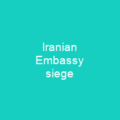Understanding Diplomatic Missions: A Closer Look
Diplomatic missions are the backbone of international relations, acting as the eyes, ears, and voice of a country abroad. But what exactly is a diplomatic mission? Is it just an embassy or does it encompass more than that?
Embassies: The Heart of Diplomacy
Is an embassy merely a building with a fancy name, or does it hold the key to understanding international relations?
An embassy is a diplomatic mission located in the receiving state’s capital city. It offers full services including consular services, making it the heart of diplomatic operations. The term ’embassy’ itself refers to the diplomatic delegation itself, not just the building where they reside.
High Commissions: A Commonwealth Connection
How do embassies differ when dealing with Commonwealth countries?
In the case of Commonwealth countries, a high commission serves as an embassy. It operates similarly to an embassy but is specifically used for diplomatic relations between Commonwealth nations.
Permanent Missions: A Seat at the Table
What role do permanent missions play in international organizations?
A permanent mission is a diplomatic mission to an international organization. These missions are crucial as they ensure that their home country has a seat at the table when important decisions are being made.
Consulates-General and Consulates: The Local Representatives
How do consulates differ from embassies, and what services do they provide?
Consulate-general and consulate missions are smaller diplomatic missions with varying levels of services. They focus on individual persons and businesses rather than the broader interests of their home country.
Legations: A Historical Perspective
What is a legation, and why might it be considered obsolete in today’s world?
A legation was a lower-ranking diplomatic representative office. While now largely obsolete, understanding its historical context provides insight into the evolution of diplomatic relations.
Honorary Consuls: A Special Role
What makes an honorary consul different from other types of consular representatives?
An honorary consul represents another country on an honorary basis with limited services. They play a unique role in promoting their home country’s interests without the full-time commitment required by other diplomatic roles.
The Head of Mission: The Face of Diplomacy
Who is at the helm of these missions, and what title do they carry?
The head of a mission is typically known as an ambassador or high commissioner. While both terms are used interchangeably in many contexts, their roles can differ slightly depending on the country’s diplomatic practices.
Residences and Operations: Beyond the Building
Do diplomats live within or outside their chancery, and how does this affect their work?
Diplomats may reside within or outside their chancery, which operates separately from the building housing the mission’s premises. This arrangement can impact their ability to engage with local communities and conduct their duties effectively.
Types of Diplomatic Missions: A Comprehensive Overview
- Embassy: Full range of services in the capital city
- High commission: Embassy of a Commonwealth country
- Permanent mission: Diplomatic mission to an international organization
- Consulate-general and consulate: Smaller diplomatic missions with varying levels of services
- Legation: Lower-ranking diplomatic representative office (now obsolete)
- Honorary consul: Represents another country on an honorary basis with limited services
The Role of the Head of Mission: A Sign of Displeasure
What happens when a head of mission is recalled, and how does this impact their role?
In cases of dispute, the head of mission may be recalled as a sign of displeasure. This action reduces their powers but allows them to continue operating with limited authority.
Diplomatic Immunity: A Double-Edged Sword
How does diplomatic immunity work, and why is it important?
Diplomats retain diplomatic immunity, which means that attacks on embassies are seen as attacks on the represented country. This principle underscores the importance of protecting these missions.
Refugees and Embassies: A Rare Occurrence
Can embassies serve as a sanctuary for refugees?
Embassies may be used by refugees seeking sanctuary, but this is a rare occurrence. It highlights the multifaceted role these missions play in times of crisis.
The Basic Role: Representing and Safeguarding Interests
What is the fundamental purpose of diplomatic missions?
The basic role of a diplomatic mission is to represent and safeguard the interests of the home country and its citizens in the host country. They provide various services, including negotiating with governments, protecting citizens’ interests, promoting friendly relations, and reporting on conditions in the host state.
International Cooperation: A Global Network
How do diplomatic missions work together to support their home countries?
Diplomatic missions between Commonwealth countries are called high commissions rather than embassies. EU member states cooperate to provide consular assistance to their citizens abroad, demonstrating the interconnected nature of these missions.
Multiple Missions in One City: A Unique Scenario
Can a city host multiple diplomatic missions from the same country?
Yes, some cities may host multiple diplomatic missions from the same country. For example, in Rome, many states maintain separate missions to both Italy and the Holy See. This arrangement reflects the complex nature of international relations.
Shared Premises: A Practical Approach
How do embassies share premises with other organizations?
The UN’s Food Agencies usually share premises with the sending country’s ambassador, but some countries have their own separate representation. This practical approach ensures efficient use of resources while maintaining diplomatic presence.
Missions in Major Cities: A Global Network
Where can we find embassies and permanent representatives for international organizations?
Multiple cities host embassies/consulates and permanent representatives, such as New York City, Washington, D.C., Jakarta, and Brussels. These locations serve as key hubs in the global network of diplomatic relations.
Non-Diplomatic Offices: A Special Case
Are there any non-diplomatic offices abroad that governments set up?
Yes, some governments establish non-diplomatic offices abroad without official diplomatic status. Examples include Taipei Economic and Cultural Representative Offices and Somaliland’s Representative Offices in various cities. These offices serve specific purposes while maintaining a low profile.

Understanding the intricacies of diplomatic missions is crucial for anyone interested in international relations. From embassies and high commissions to consulates-general and honorary consuls, each type plays a vital role in shaping our global community.
You want to know more about Diplomatic mission?
This page is based on the article Diplomatic mission published in Wikipedia (retrieved on January 28, 2025) and was automatically summarized using artificial intelligence.







